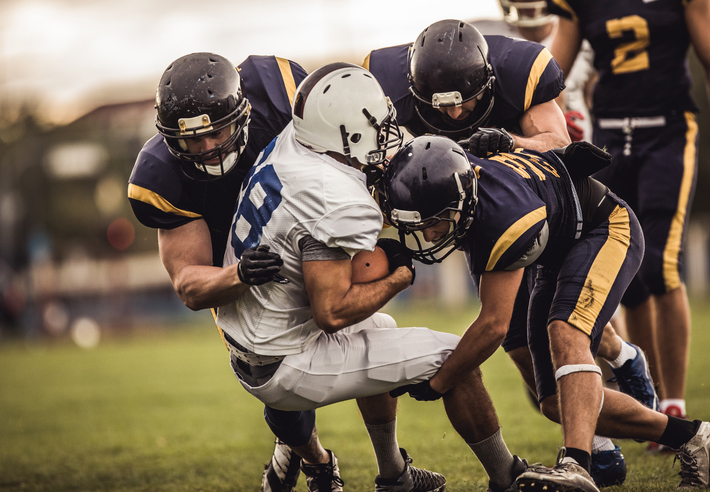‘It’s only a Scratch!’ – Athletes and Injury Concealment
I ask you to picture the scene of the Black Knight from Monty Python and the Holy Grail: The Black Knight stands defiantly in the forest, hands placed stoically on his great sword. "None shall pass!" he declares, as King Arthur approaches. Despite a fierce duel that has left him bloodied, battered, and now armless, he still insists he can fight.
Just as this theatrical stubbornness of the Black Knight displays the downplaying of injury, so too can employees, patients, and athletes. Malingering is the fabrication or exaggeration of a symptom for “secondary gain.” When the opposite occurs, in the case of the Black Knight, for example, that can be referred to as “reverse malingering.”
Reverse malingering refers to a situation where an individual intentionally underreports or minimizes a symptom or problem, often to avoid attention or to gain some form of advantage. Just like malingering, this is done for “secondary gain.” This behavior can occur in various contexts, such as in occupational situations, medical assessments, or psychological evaluations. Unlike traditional malingering, where a person exaggerates symptoms for personal gain, reverse malingering involves downplaying issues that may be significant. This behavior can negatively impact the individual’s personal health and safety and potentially lead to devastating long-term consequences.
A Pro-Athlete Concussion Pact

Reverse malingering holds significant implications for elite athletes, particularly in the realms of performance, mental health, and injury management. Athletes may underreport symptoms of physical or psychological distress to maintain their competitive edge or avoid being sidelined from training and competition. This behavior can lead to misdiagnosis or inadequate treatment, ultimately jeopardizing an athlete's long-term health and performance.
On a recent podcast, two former NFL players discussed their personal histories of concussions. They described how they avoided sideline neurological evaluations after a big hit. When they were subject to these evaluations, they described the ways they diverted attention and subverted the exam.
For example, when a player was shaken up, or even flat on the ground from a hit to the head, one player shared how he would quickly help his teammate up to avoid appearing as though he needed evaluation. At other times they would rush up to their dazed teammate and tell them to ‘grab their knee’ to divert attention. When a neurological exam seemed likely, one player said he might remind the injured player what day and year it was, what the score was, and the approximate time. This was all in hopes of subverting the system, as they put it, in part because they had financial incentives related to playing and did not want to miss any games.
Ensuring Longevity in Sport
This phenomenon can complicate diagnosis and treatment, as healthcare providers may not fully understand the extent of a person's condition. Understanding reverse malingering is crucial for professionals in medicine, as it requires careful assessment and consideration of the individual's motivations and circumstances. Recognizing this behavior can lead to more accurate evaluations and appropriate interventions.
In high-stakes environments, such as professional sports, the pressure to perform can increase the tendency to downplay issues, making it essential for coaches and medical staff to be vigilant. Understanding reverse malingering allows medical professionals to conduct thorough assessments, ensuring that athletes receive the necessary support and interventions.
Moreover, recognizing this behavior can foster a culture of openness, encouraging athletes to prioritize their well-being over competition. This is crucial for sustaining an athlete's career and preventing chronic injuries or mental health issues. Ultimately, addressing reverse malingering can enhance overall athlete performance and longevity in their sport.
By Michael Rolfe, Medical Student
University of Wisconsin
Reviewed by Claudia L. Reardon, M.D.,
Associate Professor, Department of Psychiatry
University of Wisconsin School of Medicine and Public Health
References
- Biggin I, Burns J, Uphill M. An Investigation of Athletes’ and Coaches’ Perceptions of mental Ill-Health in Elite Athletes. Journal of clinical sport psychology. 2017 June;11:126-147.
- Licciardi, A. 2024. Head games: Ex patriots receivers reveal secret concussion pact. Sports Illustrated, Jan. 16, 2024
- Lurati AR. Reverse malingering-staying on the job at any cost. Workplace Health Saf. 2013 Jul;61(7):297-8. doi: 10.1177/216507991306100704.
